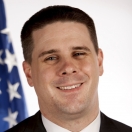
A video circulating today shows Republican Senate Whip Jon Kyl claiming that the President told him he would not enforce immigration policy on the border unless comprehensive immigration reform is passed. The President didn’t say that and Senator Kyl knows it. There are more resources dedicated toward border security today than ever before, but, as the President has made clear, truly securing the border will require a comprehensive solution to our broken immigration system.
Background on President’s Strategic and Integrated Southwest Border Strategy:
Over the past year since the Southwest Border Initiative was launched:
- Doubled the personnel assigned to Border Enforcement Security Task Forces by deploying 110 additional special agents.
- Tripled the number of ICE intelligence analysts along the Southwest border in April 2009 by deploying 28 additional personnel.
- For the first time, DHS began screening 100% of southbound rail shipments for illegal weapons, drugs, and cash.
- Deployed 13 additional cross-trained canine teams, which identify firearms and currency, to the Southwest Border to augment the five teams already in place.
- Deployed 116 additional Border Patrol Agents to augment CBP officers during inspections operations—particularly outbound inspections.
- Deployed five additional Z-Backscatter Units, which help CBP identify anomalies in passenger vehicles, to the Southwest border to augment the six already there.
- U.S. Customs and Border Protection (CBP) and U.S. Immigration and Customs Enforcement (ICE) combined have seized $85 million in illicit cash along the Southwest border—a 22 percent increase over the same period during the previous year.
- CBP and ICE together have seized 1,404 firearms and 1.62 million kilograms of drugs along the Southwest border—increases of 22 and 14 percent respectively over the same period during the previous year.
- CBP seized $29.5 million in illicit southbound cash along the Southwest border—a 39 percent increase over the same period during the previous year.
Additionally, the San Diego DHS Maritime Unified Command, comprised of U.S. Coast Guard, CBP, ICE and other law enforcement partners, saw a more than six-fold increase in maritime drug interdictions in the Pacific waters extending from the Southwest border—seizing 57,437 lbs. of drugs in fiscal year 2009 compared to 8,884 lbs. seized in fiscal year 2008. Already in fiscal year 2010, the Coast Guard has seized 11,500 lbs. of drugs across the San Diego sector.
Since 2004:
- The Border Patrol has doubled in size to approx 20,000 Border Patrol agents on board.
And U.S. Customs and Border Protection (CBP) statistics show that illegal immigration into the United States is down with apprehensions between points of entry having dropped 23 percent in FY09. During FY09 the Border Patrol apprehended 556,041 compared with 723,825 during FY08. El Paso Sector saw a 51 percent reduction in apprehensions, the Tucson Sector saw a 24 percent reduction in apprehensions, and the Rio Grande Valley Sector saw a 19 percent reduction in apprehensions. Those statistics reflect a reduction in the number of people attempting to illegally cross our borders.
- And as part of his comprehensive plan to secure the Southwest border, President Obama will request $500 million in supplemental funds for enhanced border protection and law enforcement activities. The President will also deploy up to an additional, requirements-based 1,200 National Guard troops to the border to provide intelligence; surveillance and reconnaissance support; intelligence analysis; immediate support to counternarcotics enforcement; and training capacity until Customs and Border Patrol can recruit and train additional officers and agents to serve on the border. Funds will be utilized to enhance technology at the border, share information and support with State, Local, and Tribal law enforcement, and increase DoJ and DHS presence and law enforcement activities at the border, to include increased agents, investigators, and prosecutors, as part of a multi-layered effort to target illicit networks trafficking in people, drugs, illegal weapons, and money.
Dan Pfeiffer is White House Communications Director


